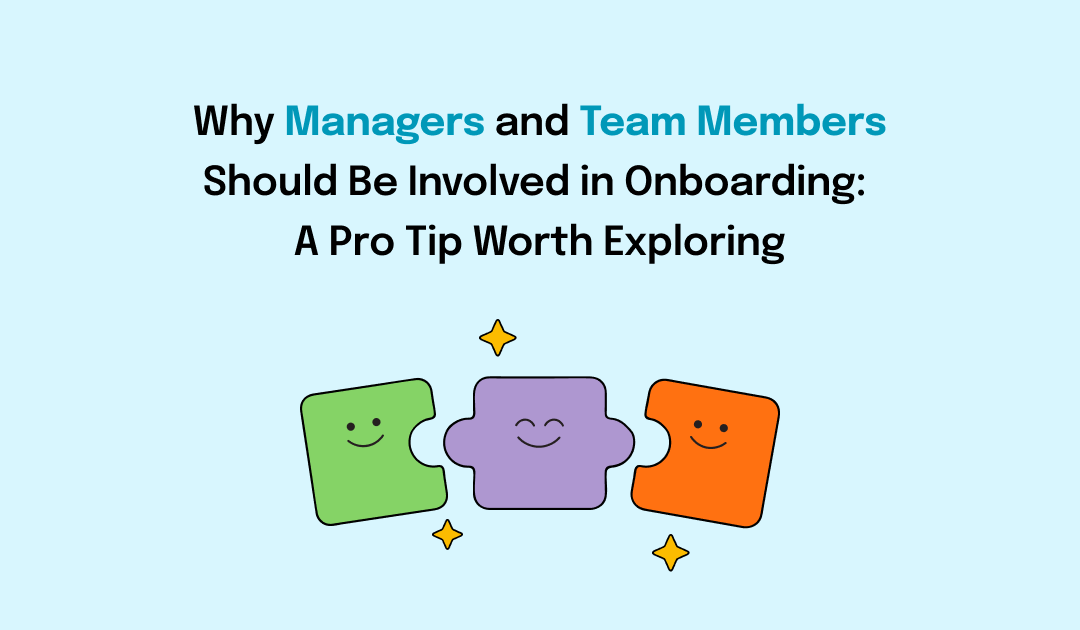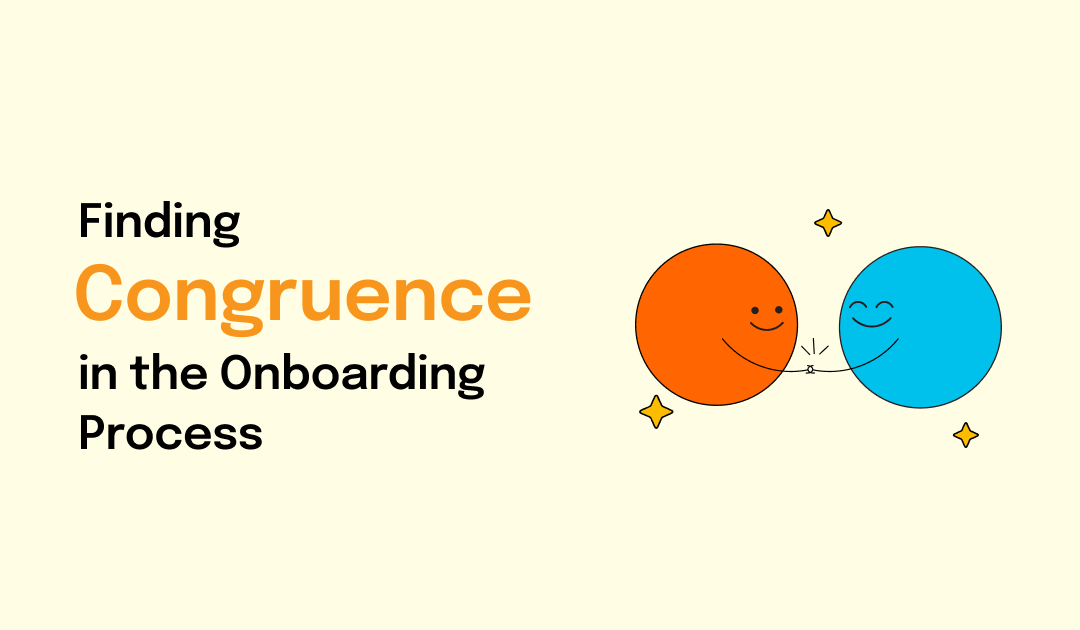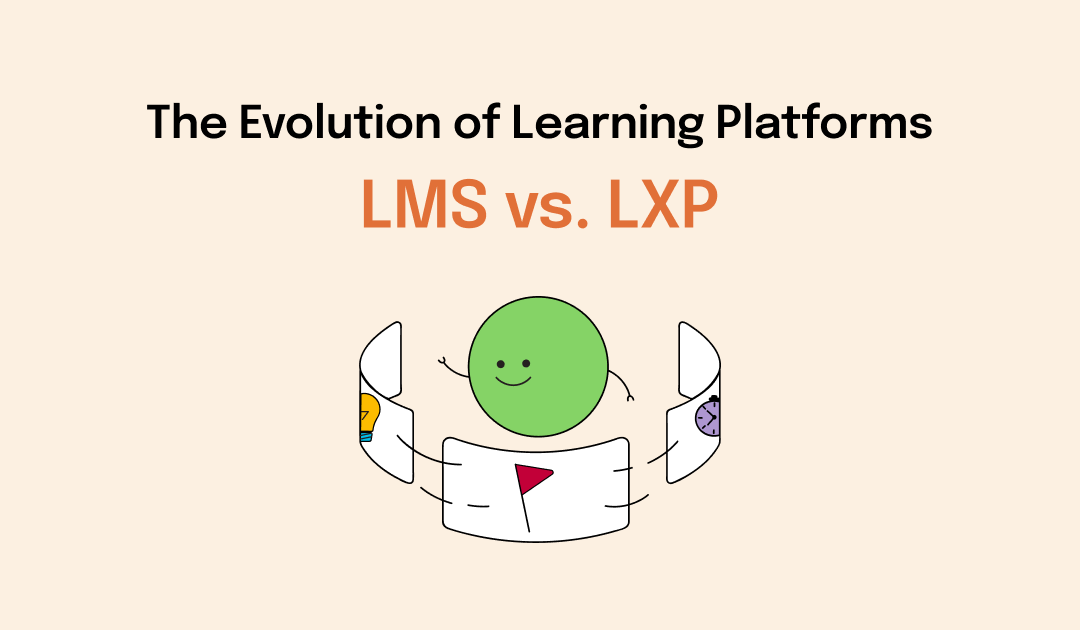Why Managers and Team Members Should Be Involved in Onboarding: A Pro Tip Worth Exploring
This idea stems from a crucial point made in the blog Finding Congruence in the Onboarding Process. If you haven’t had the chance to read it yet, I highly recommend you do so. It discusses the importance of aligning new hires' abilities, values, and beliefs with those of the company. By ensuring this alignment during the onboarding process, you set the stage for a more motivated and integrated workforce.
In the final note of that blog, we posed a thought-provoking question: “Why not involve managers and team members in the onboarding process instead of relying solely on the Talent Acquisition (TA) team?” This question has sparked some deep conversations. Let's explore why including managers and team members in onboarding could transform the way companies approach employee onboarding.
Why Relying Solely on the Talent Acquisition Team Isn’t Enough
Typically, Talent Acquisition (TA) teams are responsible for managing the logistics of onboarding—handling paperwork, benefits, and initial training modules. While the TA team plays a pivotal role, the onboarding process is much more than a checklist of tasks to be completed.
Onboarding is about emotional connection, culture immersion, and long-term success. And frankly, the TA team can’t—and shouldn’t—be expected to carry that responsibility alone. That’s where involving managers and team members comes in.
Managers: The Anchors of Context and Expectations
Managers play an irreplaceable role in setting the right expectations. After all, they will be the ones overseeing the new hire’s performance, understanding their strengths and challenges, and aligning their abilities with the team’s objectives.
When a manager gets involved early, they can:
- Provide context on the company’s strategy and how the new hire’s role contributes.
- Set clear performance expectations from the outset, minimizing mismatches in abilities and expectations.
- Foster an early connection, helping the new hire feel supported and guided as they adapt.
In short, managers can offer a layer of personalization that the TA team might not have the time or bandwidth to provide.
Team Members: The Culture Carriers
At FocusU we believe culture isn’t taught; it’s experienced. And who better to give a new hire that first taste of company culture than the people they’ll be working with every day?
By involving team members in onboarding, you:
- Demystify the work culture—Team members can offer practical insights on how things work on a day-to-day basis, from communication styles to informal norms that are harder to teach.
- Encourage early camaraderie—Let’s face it, onboarding can be awkward. When team members are part of the process, they can break the ice early on, helping new hires feel like they’re already part of the family.
- Build support networks—New hires can form relationships with people who aren’t directly responsible for their performance, offering them more avenues for advice, mentorship, and feedback.
Team involvement takes the onboarding experience beyond transactional and makes it relational—key to building that congruence we talked about earlier.
The Collaborative Onboarding Experience
Now, picture this: Instead of a one-way stream of information coming from HR or the TA team, the onboarding process becomes a collaborative experience. The new hire doesn’t just learn about the company’s values and expectations through documents or videos; they live those values by interacting with the people who embody them every day.
Here’s how FocusU can structure a more collaborative onboarding approach:
- Gamified Pre-Onboarding Experience: Create a fun and interactive gamified experience that introduces the new hire to their manager. This could include a virtual scavenger hunt, team trivia, or quick challenge rounds that not only encourage casual interactions but also provide a brief introduction to company policies. It’s a great way to break the ice, help the new hire understand essential guidelines, and give them a sense of the team’s dynamics and culture—all in a lighthearted, engaging format.
- Manager-Led Onboarding Sessions: While HR or the TA team can cover the basics, encourage managers to lead a segment that dives into the specifics of the new hire’s role, goals for the first quarter, and how their work fits into the bigger picture.
- Interactive Team Workshops: Organize short team activities where the new hire can see values like innovation or collaboration in action. These workshops could involve scenario-based problem solving or engaging and unique games designed to foster bonding and teamwork.
Beyond the Basics: Fostering a Sense of Belonging
FocusU believes in crafting onboarding as a journey, one that spans pre-onboarding, induction, and post-onboarding stages. By involving managers and team members from the very beginning, you’re doing more than onboarding an employee—you’re fostering a sense of belonging. As new hires see leaders and colleagues actively involved in their integration, they are more likely to feel like they are part of something bigger.
And, as our insights show, employees who feel connected to the company's mission are not only 18x more committed but are also 40% less likely to leave within the first 90 days
So, Do You Agree?
There’s no doubt that onboarding is a multifaceted process that requires more than just the procedural efforts of HR and TA teams. Involving managers and team members turns onboarding into a holistic experience, enriching the new hire’s introduction to the company and aligning their abilities, values, and purpose with your organization’s.
What do you think? How can your company better involve managers and team members in onboarding? Let’s talk about it. Schedule a call with our team.
Penned by Ashutosh Kumar Singh, Sr. Associate - Content Design
Read More:



